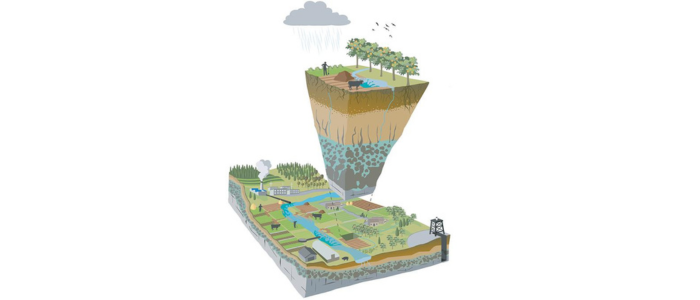Culture and Ideas Event Series at Eden Festival | June 2024
Published: 25 June 2024
The Eden Festival ran its first-ever Culture and Ideas Event Series and invited Prof Larissa Naylor to discuss the Science of Food Security.
The Eden Festival ran its first-ever Culture and Ideas Event Series as part of the 4-day family music festival. They invited Prof Larissa Naylor to discuss the Science of Food Security after seeing recent UKRI-funded research outputs that re-visualised human impacts on the landscape and incorporated local knowledge into critical zone science.
Rainy weather proved really effective for the lecture, engagement of the audience and discussions in two key ways: firstly, attendance in the session rapidly grew to a full house as the rain beat down and secondly, the rain had caused the fields, pathways, and main event areas to become seas of deep, sticky, and oozing mud, which all festivalgoers had to walk through.
These conditions enabled a locally informed discussion about sustainable agricultural diversification (how is the festival contributing to soil loss? Where might the mud that is leaving the site go? How will this impact agricultural productivity? And what will the effects be on water quality and river health?
We also had interesting debates about the transformative changes that are needed to our food, food subsidy and agricultural systems, as well as our social, political and economic willingness to change our approach to food.

The 3rd Generation transdisciplinary Critical Zone Observatory for sustainable Earth futures which includes human activity. Credit: Naylor et al. [2023], Figure 1b
First published: 25 June 2024
<< Blog

